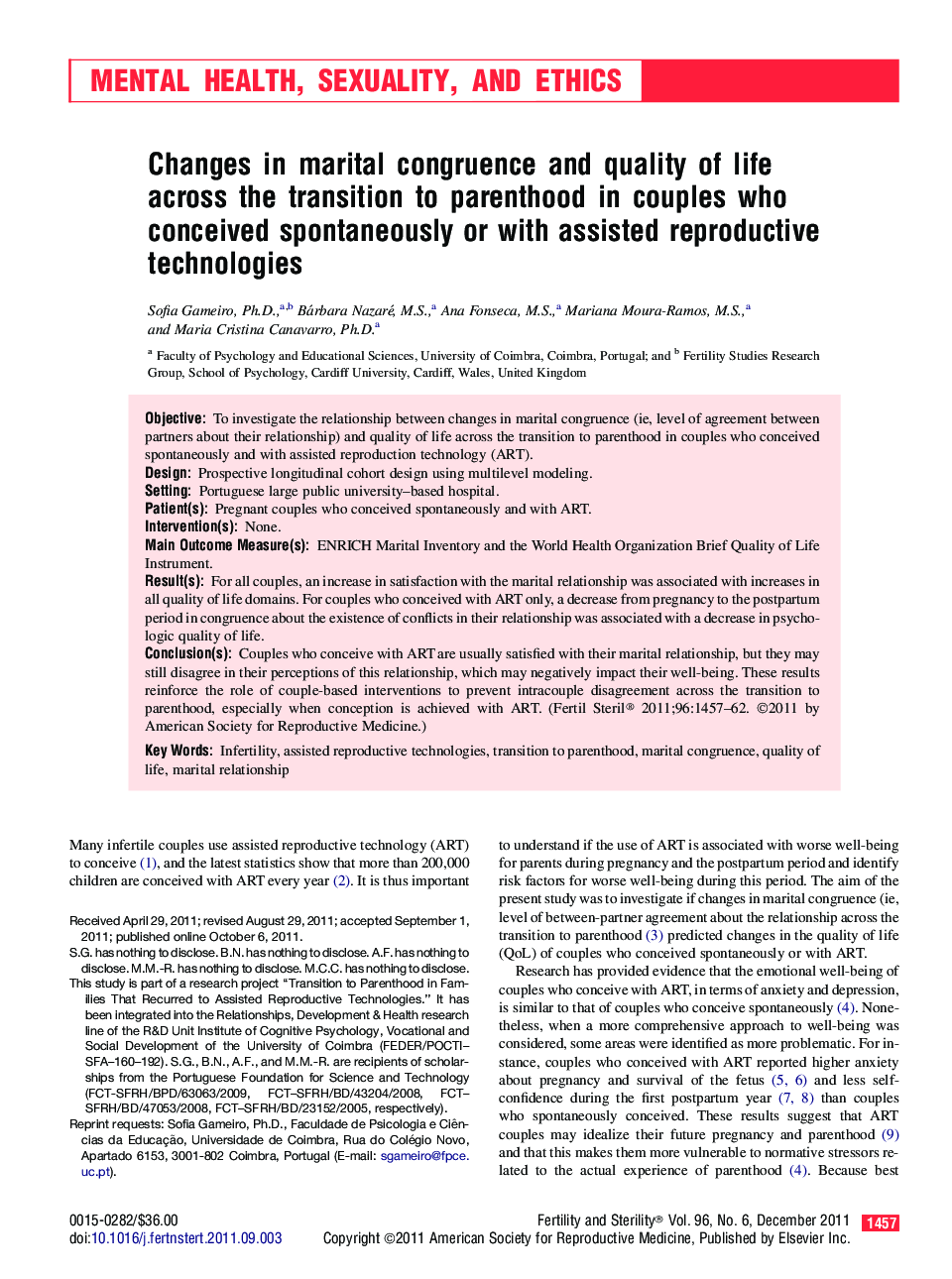| Article ID | Journal | Published Year | Pages | File Type |
|---|---|---|---|---|
| 3935581 | Fertility and Sterility | 2011 | 6 Pages |
ObjectiveTo investigate the relationship between changes in marital congruence (ie, level of agreement between partners about their relationship) and quality of life across the transition to parenthood in couples who conceived spontaneously and with assisted reproduction technology (ART).DesignProspective longitudinal cohort design using multilevel modeling.SettingPortuguese large public university–based hospital.Patient(s)Pregnant couples who conceived spontaneously and with ART.Intervention(s)None.Main Outcome Measure(s)ENRICH Marital Inventory and the World Health Organization Brief Quality of Life Instrument.Result(s)For all couples, an increase in satisfaction with the marital relationship was associated with increases in all quality of life domains. For couples who conceived with ART only, a decrease from pregnancy to the postpartum period in congruence about the existence of conflicts in their relationship was associated with a decrease in psychologic quality of life.Conclusion(s)Couples who conceive with ART are usually satisfied with their marital relationship, but they may still disagree in their perceptions of this relationship, which may negatively impact their well-being. These results reinforce the role of couple-based interventions to prevent intracouple disagreement across the transition to parenthood, especially when conception is achieved with ART.
